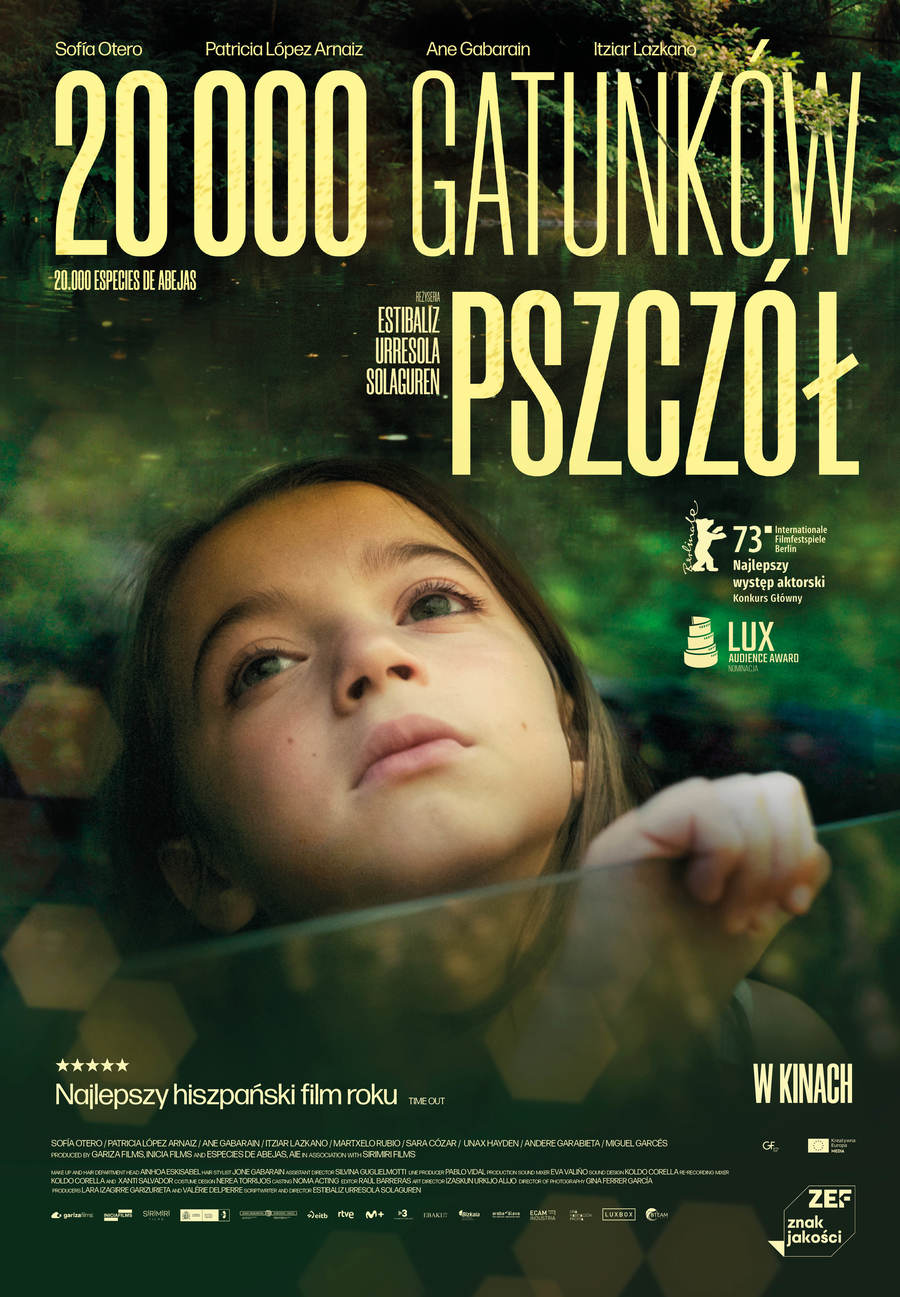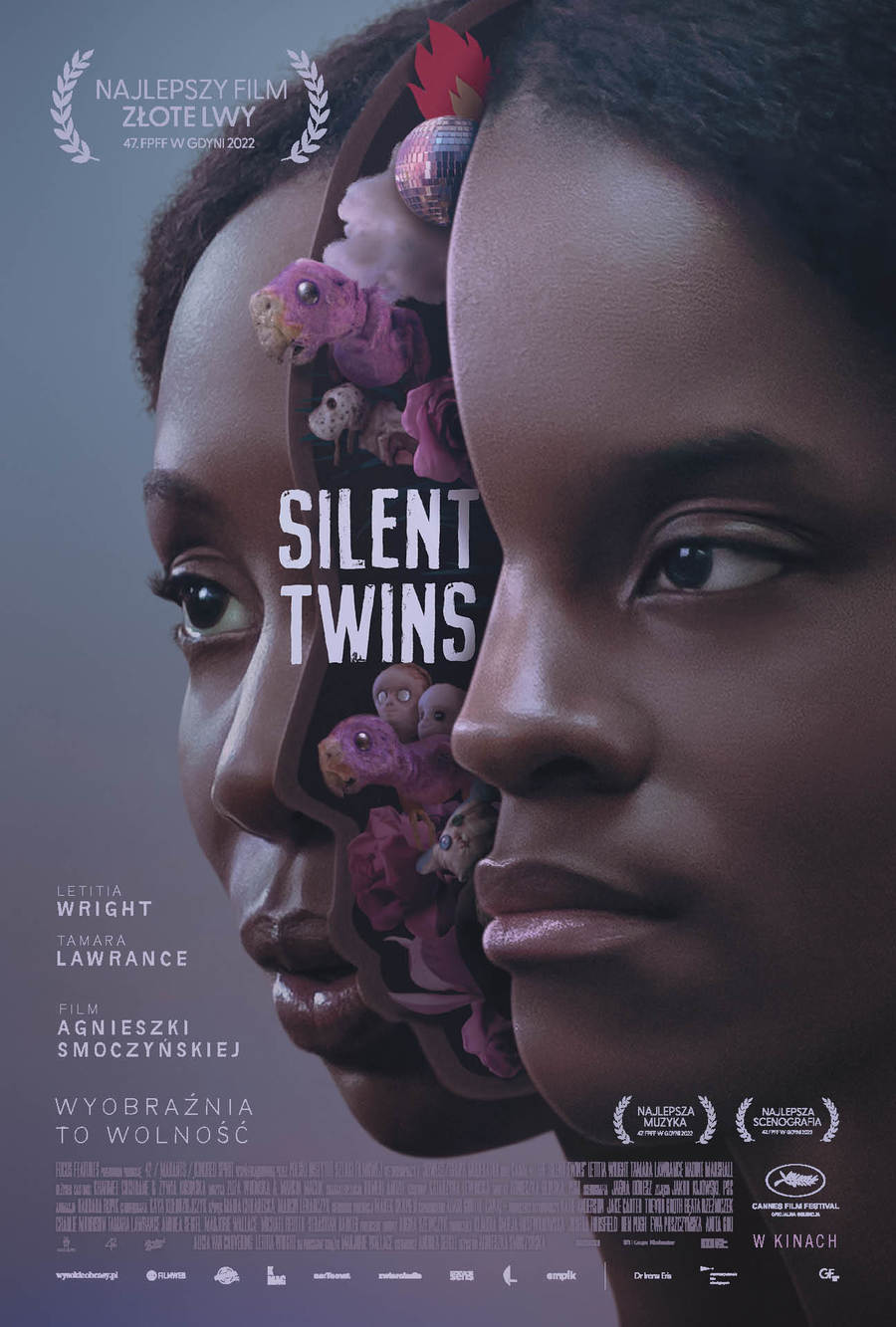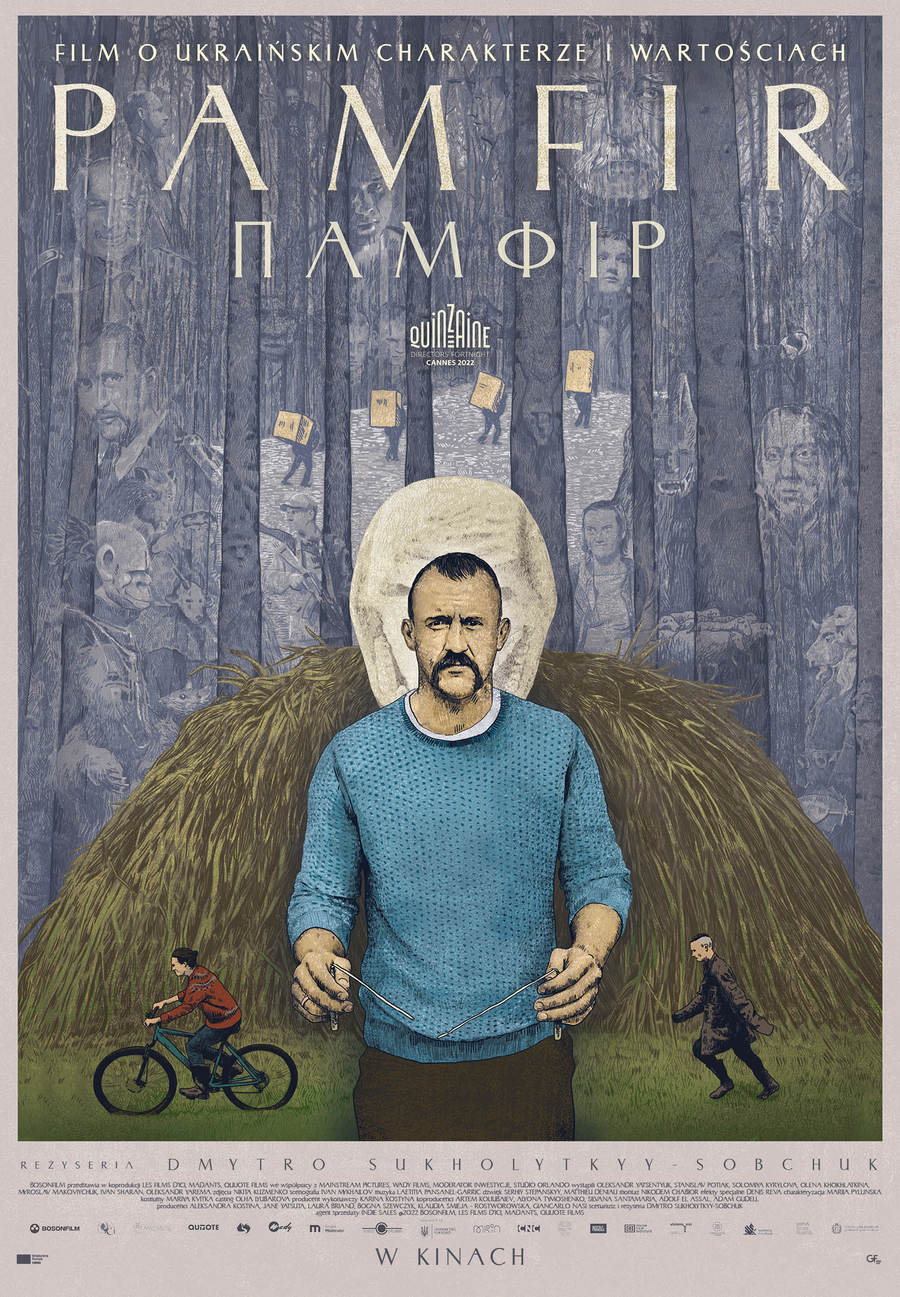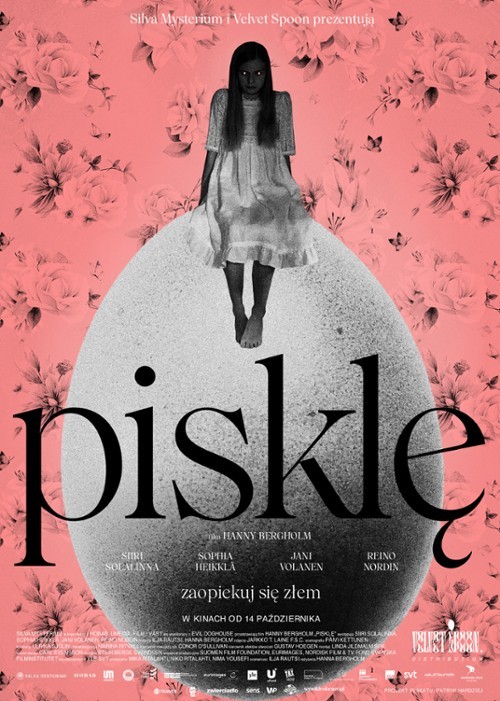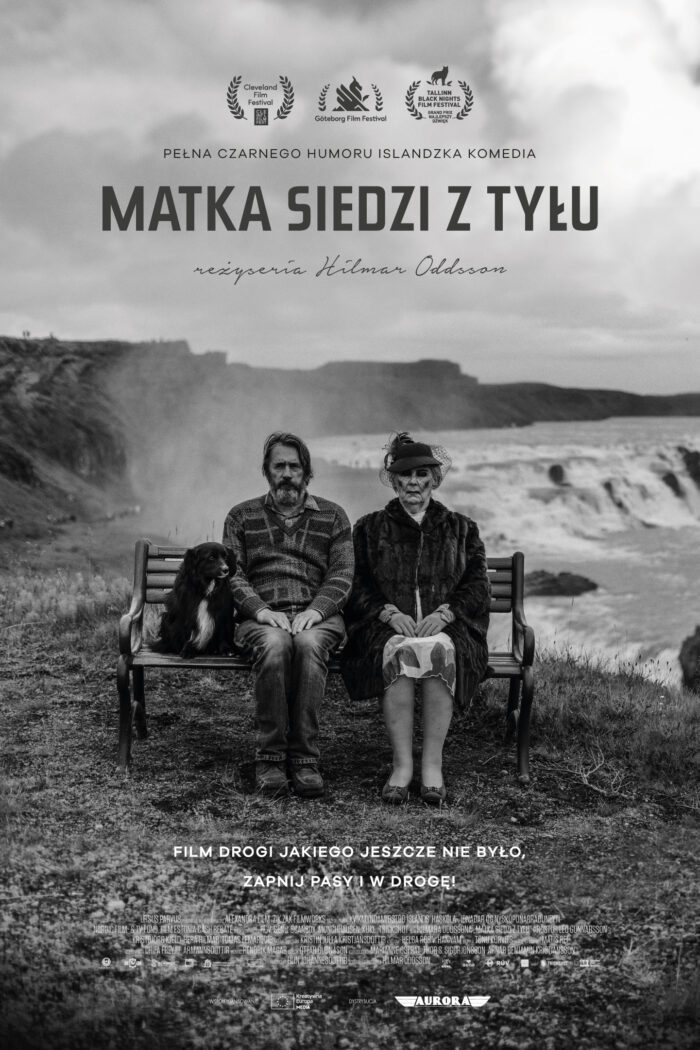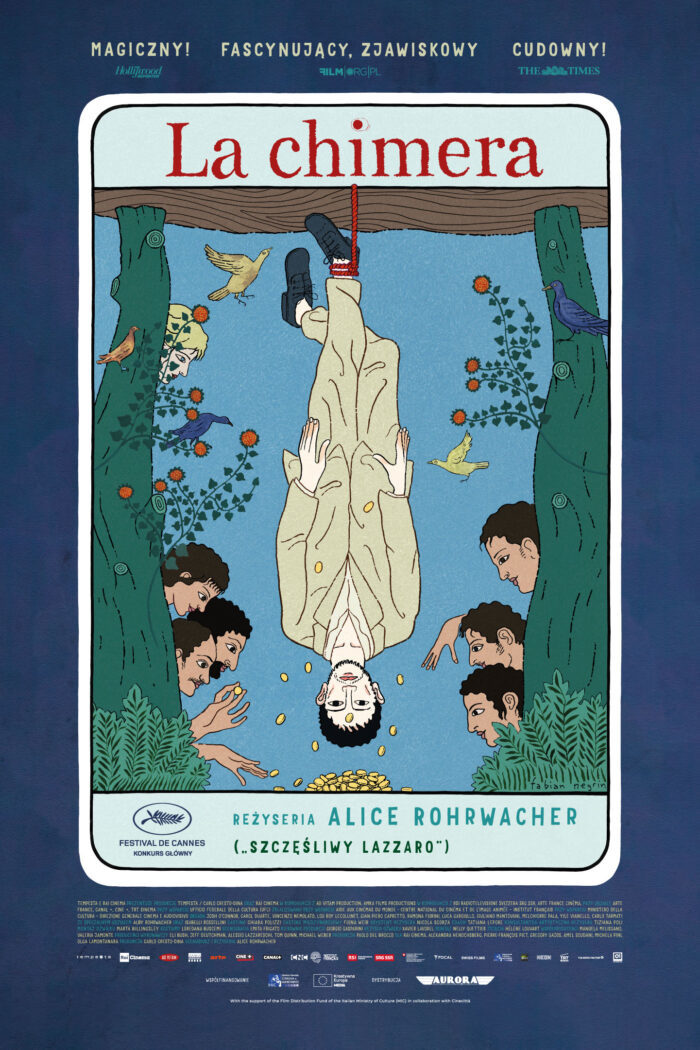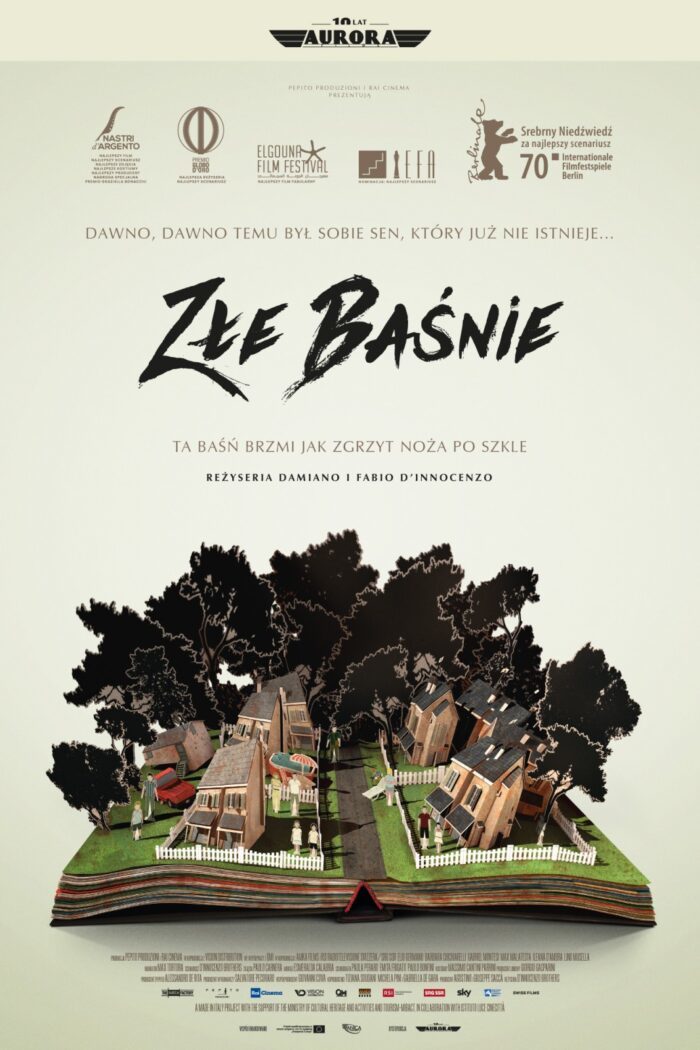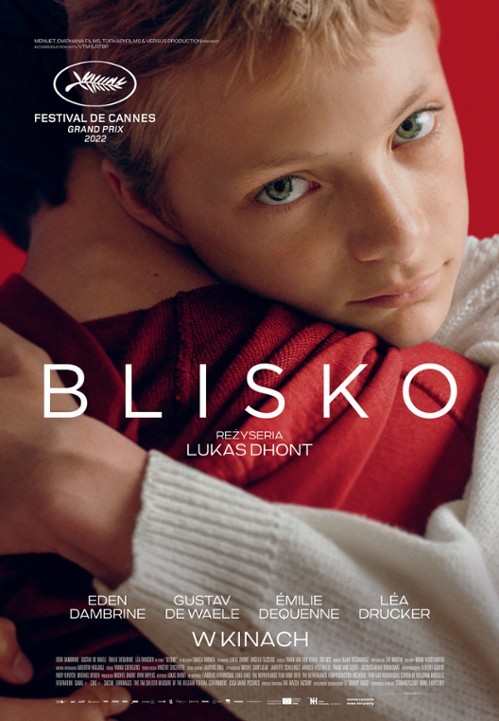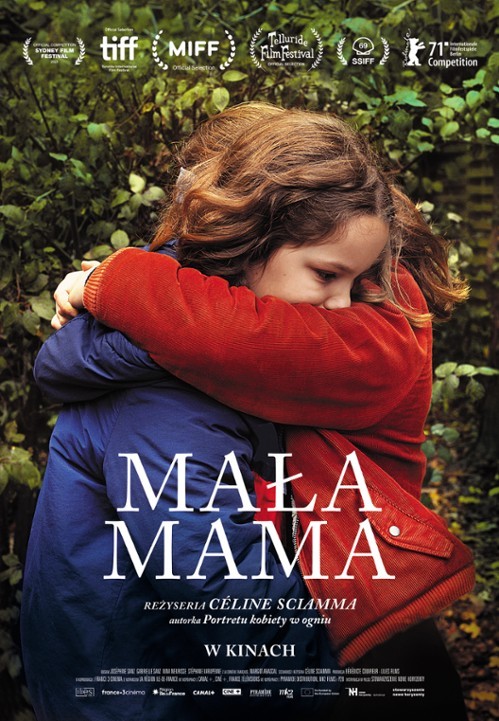MOCAK Summer Cinema
Published at:08.05.2025
As usual, during the summer holidays, MOCAK invites viewers to evening film screenings. This year’s edition is inspired by the exhibitions currently on show.
The screenings will take place on Fridays from 4 July to 29 August in the museum arcades.
The 2025 Summer Cinema repertoire comprises contemporary European films, whose topic and emotional ambience correspond to the contexts of the current exhibitions. A generation of bold young filmmakers consistently use their idiosyncratic style to tell stories about entering adulthood, turbulent relationships with peers and adults, facing traumas, finding fulfilment, drawing strength from imagination, and the experiences of joys and sorrows from the perspective of childhood – a time when everything was simpler and yet most difficult. Breaking down the conventions of a specific genre, experimenting with the format or employing the convention of a fairy tale, each of the filmmakers touches on a different truth about what we experience as children and how it affects all of our later life.
Admission 10 PLN. Tickets can be purchased at the museum box office from Tuesday to Sunday from 11 am to 7 pm and online (while the limited numbers last). Tickets purchased electronically will be sent to the email address provided once the payment has been credited.
Cinema curator: Adrian D. Kowalski
20,000 Species of Bees
20,000 especies de abejas
Spain, 2023
directed by: Estibaliz Urresola Solaguren
2 h 5 min
In Spanish, with Polish subtitles
Best Spanish film of the year, and winner of the Silver Bear for Best Actress at the Berlin IFF. The ten-year-old (!) Sofia Otero is the youngest-ever winner of this award at the Berlinale. In 20,000 Species of Bees, she plays a character who, one hot summer, amidst buzzing hives, the bustle at the pool and family squabbles, begins frantically searching for a place of her own in the hive. She is a child who shall challenge the established norms, rules and traditions, bringing long-hidden secrets to light and causing the women of the family to examine their own choices and repressed desires. Her childish rebellion will remind them that there are many ways to manifest the truth about oneself. This cinematic debut of the director Estibaliz Urresola Solaguren is a tender and gentle story about acceptance, full of admiration for the diversity of a world that has room for as many as 20,000 species of bees. So why is it that the enormous wealth of ways in which human personality, gender or sexuality manifests itself is so often objected to? 20,000 Species of Bees is also a moving portrait of a family that is like a hive: everyone has a role, everyone protects each other. There is room here for lost mothers, courageous daughters, outspoken aunts and grandmothers who guard the family secrets. And although in this hive, brimming with emotions, generations and experiences collide, each of its inhabitants has the right to want her whole life for herself.
Trailer: youtube.com/watch?v=u9IBlaFL3uo
Silent Twins
Poland, UK, 2022
directed by: Agnieszka Smoczyńska
1 h 53 min
In English, with Polish subtitles
Screened for the first time at the Cannes Film Festival, Silent Twins is the latest film by Agnieszka Smoczyńska, the creator of The Lure and Fugue. One of Poland’s most original directors, who talks about what is wild and untamed in us with the lightness of a dance step, again demonstrates her unfettered imagination in her English-language debut. The visionary and filled with music Silent Twins, although based on a documentary by Marjorie Wallace, bears the unmistakable stamp of the director’s hallmarks. And just like Smoczyńska’s previous films, it is shot from the perspective of women. This time, they are twins from Wales: June and Jennifer Gibbons, who have stopped communicating with the world. What their bleak provincial setup mainly has to offer to the black girls is humiliation; from it, the ‘silent twins’ escape into an explosion of neon colours, sprinkled with sunshine and fantasies of fame as writers, romantic love and swimming pools full of Pepsi-Cola. But June and Jennifer’s hormone-fuelled teenage imagination does have a dark side, as does their sisterly bond, with an undercurrent of rivalry. In creating the twins’ inner world on screen, Agnieszka Smoczyńska draws liberally on the aesthetics of old advertisements, glossy magazines and soap operas. She interweaves thriller with a sensual musical, and drama with stop-motion animation. The emotional bomb that is Silent Twins also owes its energy to Letitia Wright (Black Panther, the Black Mirror series) and Tamara Lawrance (Small Axe series). The actresses create poignant roles of girls who cannot live either together or without each other, and whose teenage rebellion has spiralled out of control. Smoczyńska’s film can be read as a study of a toxic relationship, artistic genius or female rebellion. Perhaps it is a story of escape from a racist society, or perhaps a ballad about impossible love?
Trailer: youtube.com/watch?v=MDeOPJJcCGA
Pamfir
Poland, France, Luxembourg, Chile, Ukraine, 2022
directed by: Dmytro Sukholytkyy-Sobchuk
1 h 43 min
In Ukrainian, with Polish subtitles
A virtuoso crime thriller, a picturesque Carpathian western, or perhaps a folk tale on steroids? Enthusiastically received at Cannes, Pamfir draws liberally on genre cinema, but – just like its main protagonist, Pamfir – breaks all the rules, because this is the only way to survive in the corrupt borderland world of corrupt cops and smugglers sneaking through the forest. Bathed in the mists of Bukovina, immersed in mysterious local rituals and brutal local arrangements, Dmytr Sukholytkyy-Sobchuk’s debut is not a portrayal of the Ukrainian countryside that we might expect; yet, at the same time, it is a universal story about unconditional love. About a son who wants to be like his father, and about a father who will do anything possible to prevent his son from following in his footsteps. Pamfir, once a smuggler, now a labourer earning a living in Poland, has returned home to Western Ukraine. He wants to spend the annual carnival in the village and, above all, to be with his wife and son. However, the teenage Nazar gets into trouble and his father is forced to repay his debt. Pamfir renews old contacts and accepts one last assignment. Little does he know that he is entering a world where everything can be smuggled in, except the good. One of the best Ukrainian films of the year masterfully weaves together cinematic conventions, pagan myths and Ukrainian reality. In Pamfir, labour migration seems to be the only chance to escape the lack of prospects and the omnipresent corruption – but it separates families for years. There are distant echoes of war, adding new and surprising meanings to the film. Although Pamir does not refer directly to the invasion, the visionary film has become a metaphor for the present situation.
Trailer: youtube.com/watch?v=amUXL8h8l2M
Hatching
Pahanhautoja
Finlandia, Szwecja, 2022
directed by: Hanna Bergholm
1 h 26 min
In Finnish, with Polish subtitles
Tinja is a shy teenage gymnast raised by a domineering mother who dreams of an Instagram-perfect life – with perfect breakfasts, ever-smiling children and faux family happiness. One day, Tinja finds an egg in the forest, which she decides to take home. Before the eponymous chick hatches, however, the egg grows to an enormous size. Those who are familiar with the seminal horror films from the A24 stable can expect from Hatching a metaphor for emerging womanhood. Hanna Bergholm’s feature-length debut, however, offers much more. The ingenious script combines horror, fairy tale and coming-of-age story. Gustav Hoegen, who is responsible for special effects, has previously worked on Star Wars and Ex Machina. He has created one of the greatest monsters in the history of European genre cinema. The result is a film that terrifies, moves and does not let you forget.
Trailer: youtube.com/watch?v=BimI6eccWXc
Driving Mum
Á ferð með mömmu
Islandia, Estonia, 2022
directed by: Hilmar Oddsson
1 h 52 min
In Icelandic, with Polish subtitles
Jón is a middle-aged man who lives with his mother in the Icelandic countryside. Over the years, she has dominated this relationship, completely subjugating her son. When his mother dies unexpectedly, Jón is determined to fulfil her last will, relating to her burial place. He carefully combs and dresses her corpse and plants it in the back seat of the car, where there is enough room for his beloved dog called Brezhnev, and sets off on a journey across the entire country. The journey will become for him not only a form of farewell to his mother, but also an opportunity to rethink their relationship and all the constraints he has had to face over the years. It is also a chance for a fresh start, as along the way Jón comes to realise that it is high time to start living on his own account. The idea for this film had been germinating in the head of the seasoned Icelandic director Hilmar Oddsson for 30 years. Here, the story of late adolescence and accompanying the deceased person on their last journey has been filtered through a Scandinavian sensibility, bursting with black humour. The result is a film that is the perfect combination of black comedy and road cinema.
Trailer: youtube.com/watch?v=qNlayPWVo9E
La Chimera
Italy, France, Switzerland, 2023
directed by: Alice Rohrwacher
2 h 10 min
In Italian, French, English and Portuguese, with Polish subtitles
It is said that we all have our own chimera. Something we dream of but can’t get. For a group of petty thieves, who rob local graves and sell archaeological finds, it is a desire to get rich quick. It would mean deliverance from having to work. Arthur (Josh O’Connor), on the other hand, is reminded of Benjamina, the woman he had loved and lost. He does not give up easily, however, and decides to challenge the impossible – even if it means wandering through the mythical hereafter. In search of the legendary buried portal into another reality, Arthur joins forces with the robbers. He offers them his talent for pinpointing the locations of ancient treasures, while they reciprocate by digging up the countryside for him. Thus begins an extraordinary, magical journey into the unknown...
Trailer: youtube.com/watch?v=LVZrUdXz7ys
Bad Tales
Favolacce
Włochy, Szwajcaria, 2020
directed by: Damiano D’Innocenzo, Fabio D’Innocenzo
1 h 38 min
In Italian, with Polish subtitles
The film is set in a Roman suburb, during a hot summer,. The heat pouring down from the sky makes time almost stand still. But once you step into the world created by the D’Innocenz brothers, you’ll find yourself a long way from the Italian dolce vita. At first glance, the families living here do not appear in any way special. Like many others, they have their shared joys and sorrows and emotional ups and downs. It is just there are far more of the downs than the ups – and moreover combined with growing frustration and aggression caused by personal, material or class circumstances. Homes are not safe havens, instead becoming silent witnesses to the sadistic behaviour of fathers and the passivity of mothers. The indifference of the adults hits the children the hardest, and they may turn out to be the real subversive force of this evil tale... It is certain that this story, framed in the formula of a dark contemporary fairy tale, is a cinema of extreme emotions, involving for the viewer, it hits the raw nerve. The original title, Favolacce, is a combination of the Italian words ‘favole’ – story – and ‘parolacce’ – a curse.
Trailer: youtube.com/watch?v=p3o0JffRT0E
Close
Belgia, Holandia, Francja, 2022
directed by: Lukas Dhont
1 h 43 min
In French and Dutch, with Polish subtitles
Lukas Dhont’s Close, a Cannes Grand Prix winner with an Oscar nomination, is a sensual, tender story about the friendship of two 13-year-olds. Léo and Rémi love spending time with each other; their relationship is intense, spontaneous and lively. But silly gossip, peer pressure and getting lost in a world with unclear rules of engagement cause Léo to start distancing himself and hurting Rémi’s feelings. No one in contemporary cinema knows how to work with young actors like the author of the memorable Girl; every gesture, glance and word spoken by the teenage actors are poignant with authenticity. Dhont talks about the helplessness inherent in adolescence;who, at 13, can judge the strength of their own feelings and decisions? The 31-year-old Belgian director does not judge anyone and is guided by an extraordinary empathy that distinguishes only the greatest humanists of world cinema. Close is more than a beautifully filmed coming-of-age story. Above all, it is a universal film about accepting one’s mistakes and learning to live through the most difficult, most painful emotions.
Trailer: youtube.com/watch?v=GWN8XJHe27w
Little Mother
Petite maman
Francja, 2021
directed by: Céline Sciamma
1 h 12 min
In French, with Polish subtitles
Would we have been able to be friends with our own parent if our paths had crossed when we were both children? Such a situation happens to eight-year-old Nelly. She meets a peer who bears a striking resemblance to her mother. This unusual event becomes the starting point for a story of friendship that transcends generational barriers and is also a brilliant study of the power of a child’s imagination. In her latest film, Céline Sciamma, the author of Portrait of a Lady on Fire, which won the Cannes Prize, explores the theme of working through grief (we meet the protagonists when the doyenne of the family passes away), but brings to the fore the extraordinary tenderness of family relationships and celebrates the curiosity about the world that young Nelly infects us with. Little Mother is a fairy-tale story, full of discreet warmth and at the same time a love letter to that moment in our lives when reality was first and foremost experienced with the heart. Although the events are set in France, many of us will find here a reflection of our childhood memories, our favourite games, smells and tastes.
Trailer: youtube.com/watch?v=izIR5ux-EAY
